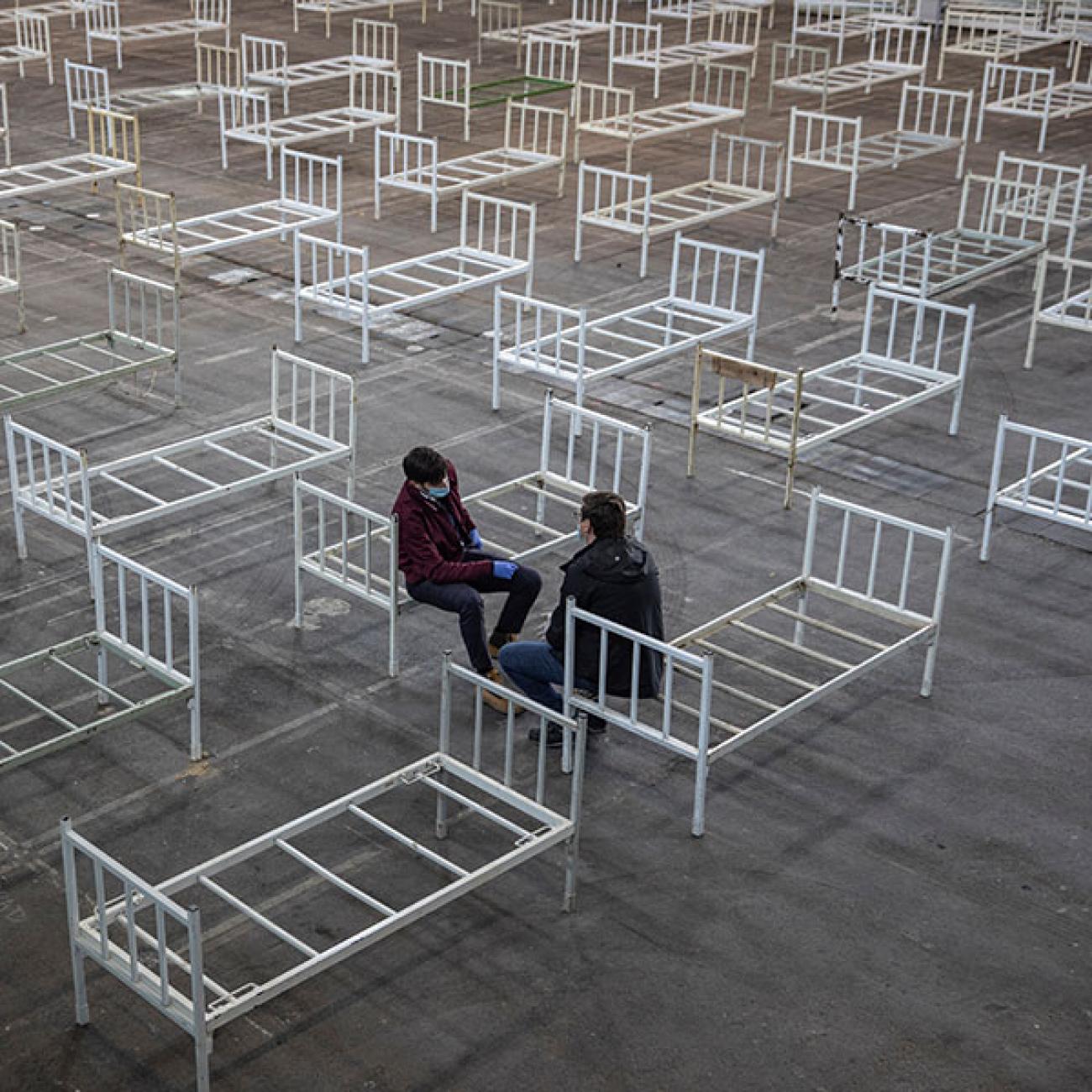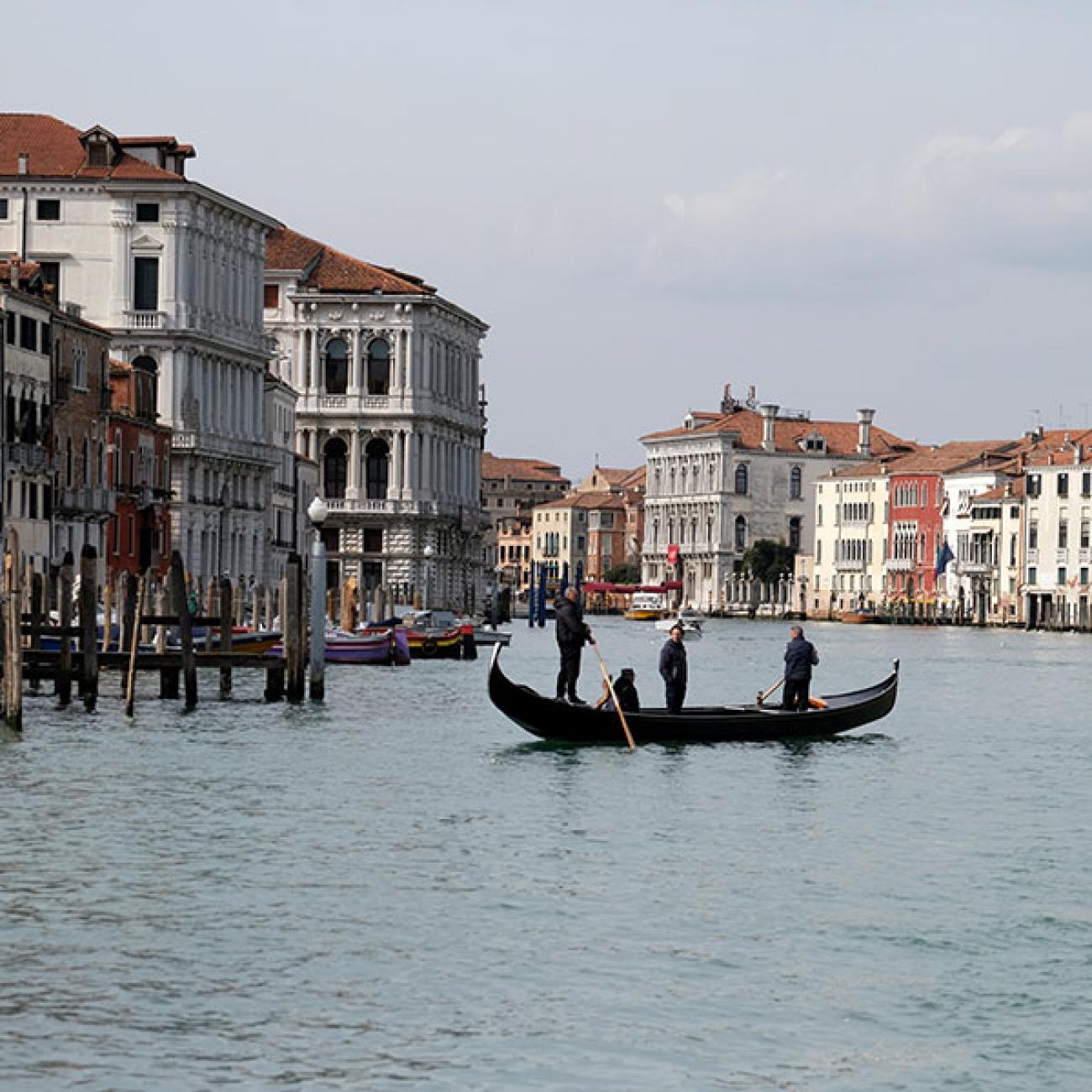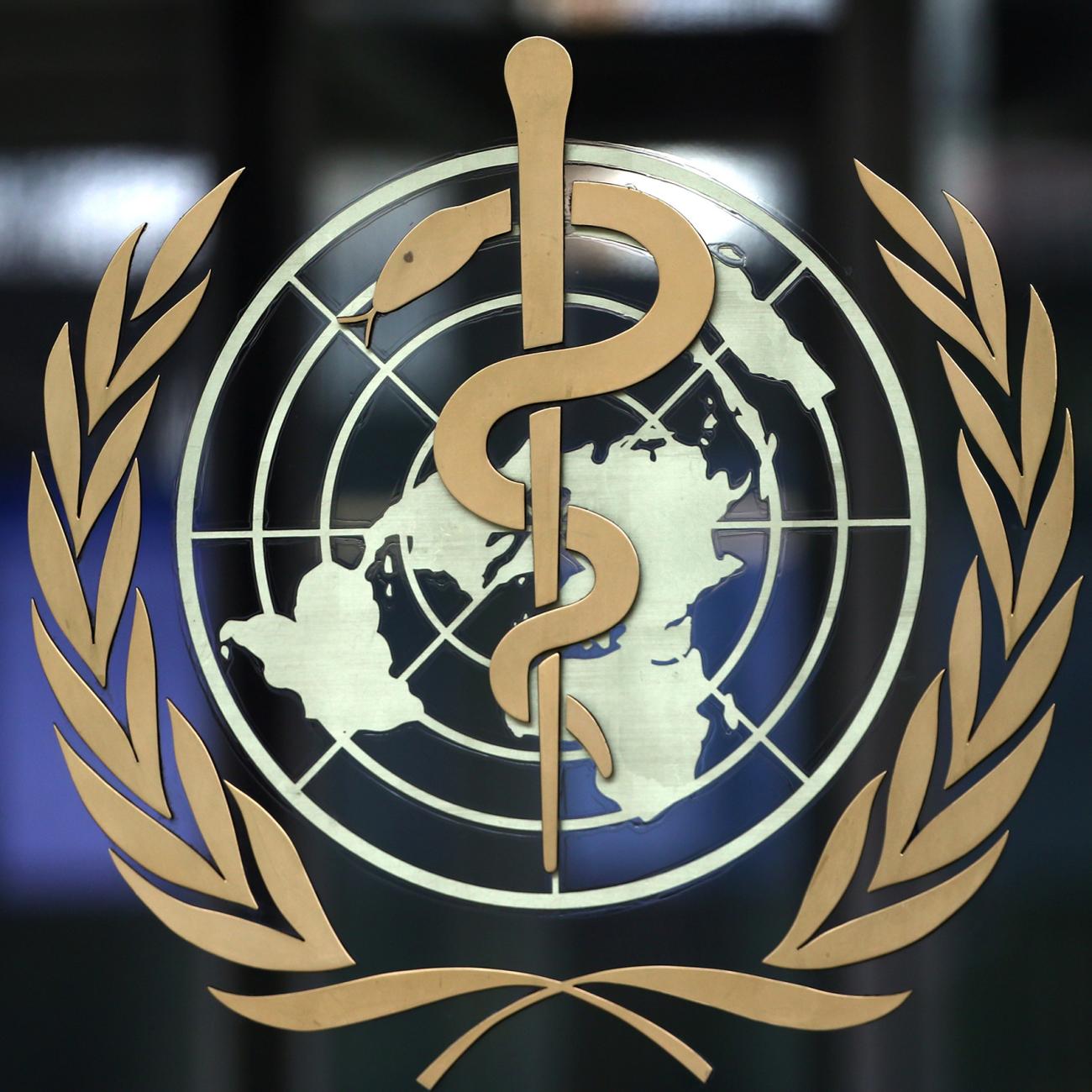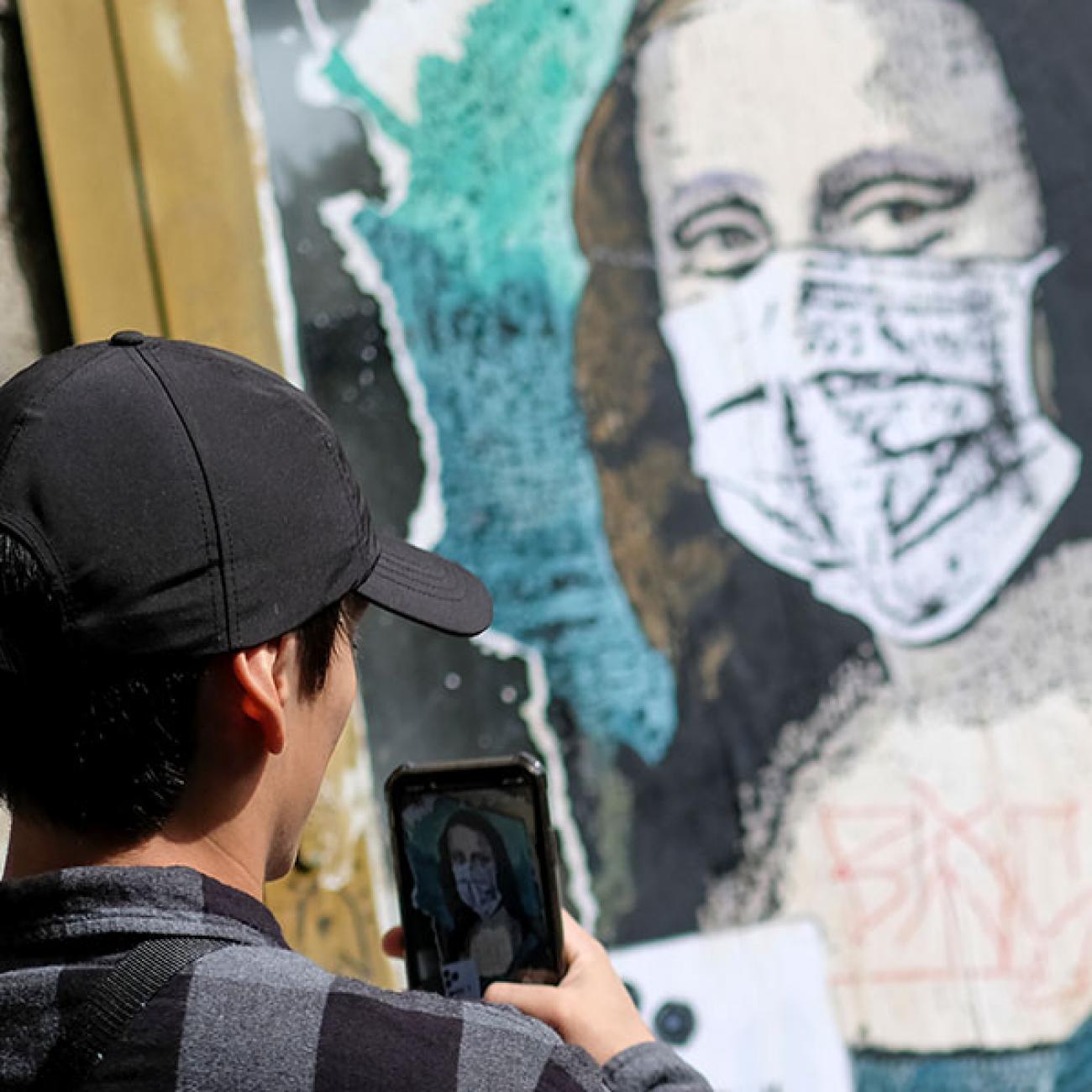For the World Health Organization (WHO) to be subject to political pressure by its member states is nothing new. Geopolitics are part of its daily bread, and they are present at every single meeting. Its directors general must be highly skilled diplomats, with great capacity to tolerate being the scapegoat of member state attacks, which are usually staged for a national audience in the context of geopolitical conflicts or commercial interests linked to the domestic economy. To be clear, there are many mistakes the WHO has made over the years, there are many weaknesses in the way it is organized, and to the extent that sometimes it appears highly dysfunctional—it actually is. But despite all the rhetoric and constant piling on the WHO for inaction, many member states actually want a weak WHO. That is exactly why they don’t want to pay for it.
Despite all the rhetoric and piling on for inaction, many member states actually want a weak WHO. That is exactly why they don’t want to pay for it
The WHO’s technical staff are supposed to be nonpolitical, as could recently be witnessed as one of them was pushed on the political issue of Taiwan. They are disease experts and ill-equipped to deal with the intricacies of global diplomacy. This allows the WHO to be pushed around by its member states—and in the age of the rapid news cycle and social media, it becomes an especially easy target because its nonpolitical makeup does not allow it to fight back and criticize individual member states in public. So rarely has the WHO ever spoken out publicly against one of its members that when it does happen, everyone remembers it and sees it as an extraordinary show of courage. Former WHO Director General Gro Harlem Brundtland during the Severe Acute Respiratory Syndrom (SARS) outbreak in 2003 called out China and the City of Toronto for not acting responsibly. The expectation is normally that WHO does not blame countries in public but tries to get them to work together. The present political climate is not made for that approach.

Seventy-Two Years of Crisis, Reform, Reinvent, Repeat
The idealistic architects of the World Health Organization in 1945 wanted to protect the new organization from political machinations as much as possible—very much along the lines that nongovernmental organizations would like to see the WHO today. They proposed that the new “technical agency on health” be a part of the United Nations but situated in Geneva, far from New York, where the political battles at the UN would be fought. The founders had lived through the politization of health in the League of Nations, before and during World War II. They wanted no repeat of those failures.
WHO's architects proposed in 1945 the agency be in Geneva—far from New York, where the political battles would be fought
This new organization was to work with all countries—regardless of their political systems—and motivate them to leave politics aside to work together for one goal only, as stated in its constitution, “the highest achievable level of health.” The way the WHO is set up expects it to work on consensus, much of it achieved in longwinded negotiations in long-lasting committees with experts and member state representatives, supported by exhausted staff. Today, in the thick of political fights around COVID-19 and the WHO’s role, the euphoria of the immediate postwar years of a science-based organization free of politics seems a very distant memory. But the promise of a politically aloof WHO faded almost as soon as it was out of the box. The WHO's first Director General Brock Chisholm famously refused reelection because of the political pressures put on him even then.
But the founders of the WHO also knew about the critical role of law in public health. Indeed, complementary to its broad mandate, the constitution gives the organization extraordinary power: The WHO can promote and adopt treaties (Article 19), and it has at its disposal an innovative international legal mechanism in the form of binding regulations (Article 21). It is this power that is the thorn in the side of those who fight to close down the organization, as they have done for decades using every entry point possible. Article 19 states that the World Health Assembly (WHA) "shall have the authority to adopt conventions and agreements with respect to any matter within the competence of the Organization." The WHO has done so in many areas critical for public health but perhaps has never been attacked so consistently as when it started to give the prevention of noncommunicable diseases a higher priority.

The Fight Over COVID-19 Is Smoke and Mirrors
The real war is not about the WHO's inaction but rather its action—specifically its exercised power to set international rules, like the Framework Convention on Tobacco Control; its list of essential medicines; and its International Code of Marketing of Breastmilk Substitutes, restrictions for commercial companies.
Some criticize the WHO for not using its power enough. But often the loudest complaints come from the WHO's many critics who perceive it going too far
The power enshrined in the WHO constitution is political dynamite. It allows the WHO, among other things, to set standards for the safety, purity, potency, advertising, and labelling of biologicals, pharmaceuticals, vaccines, and similar products moving in international commerce. This was written in 1946, long before globalization, and today some member states criticize the organization for not using the power inherent in these articles enough. But often the loudest voices of complaint come from the WHO's many critics who perceive it going much too far. Just think, if you were to close down the WHO, you could at the same time get rid of all the excruciatingly detailed normative work the organization does in order to protect health like standards in air pollution and drinking water or recommendations on sexual and reproductive health and rights. Your global industry would no longer be subject to rules set by a majority of the world’s states in the World Health Assembly, the decision-making body of the WHO.
Most of the critics of the WHO—from any political spectrum—forget that it is governed by its member states—one country one vote. It started in 1948 with 56 states, now there are 194 and 2 territories. These countries decide on policies and budgets in the annual World Health Assembly, and they elect the director general every five years. Depending on the issues at hand, negotiations are left to the health ministries of member states—but the more political a negotiation is, the more the instructions come instead from countries' ministries of foreign affairs. In some cases the negotiations are taken over by the professional diplomats. But health care has become one of the largest industries in the world. It encompasses major business interests (from pharmaceutical manufacturers to the tobacco or sugar industry). Health care overlaps with significant security interests. But therein lies the problem: One can’t fully trust health ministers to follow instructions that don’t put health first. If you don’t want the WHO to recommend a sugar tax, then do not let your health minister negotiate. The risk when you let your health minister negotiate is that the decision might be fact- and science-based and not in the interest of your sugar industry.

We Pay—So We Should Say
As in all walks of life, those that pay the most often want to call the shots. That has been the longstanding mindset of U.S. political representatives and commentators in relation to the United Nations. Countries pay their dues to the WHO through assessed contributions calculated by the UN budgetary office. The United States has always been the largest contributor, with assessed and voluntary contributions together representing approximately 17 percent of the WHO’s total revenue in the 2016–17 biennium. While defending and promoting its leadership role in global health, the United States has always worked to keep the WHO budget as low as possible and has exerted tough political pressure—it has threatened to leave before. More passive aggressively, the United States exerts subtle influence to allow only nominal budget growth and usually pays its contributions as late as possible to exert additional pressure. As is often quoted, the budget of WHO is comparable in size to the University Hospital of Geneva. That’s how cheaply we want our global health.
WHO's budget is comparable in size to the University Hospital of Geneva. That’s how cheaply we want our global health.
But in the current context money no longer automatically implies power, and the will to follow U.S. leadership is waning. Some countries are even welcoming (behind closed doors) a recalculation of contributions so as to politically trim down U.S. influence and make it more like any other member. Would the United States be able to live with that? In the past it could use its power, money, and influence to bypass the WHO and create new global health organizations—such as The Global Fund—through which it maintained its key influence as the major donor. That surely is the idea behind creating a new organization on health security that has been floated by members of the Donald J. Trump administration as well as some academics—we pay, and you accept our understanding of health security. The political argument always sounds the same: THe WHO is not up to task, it has not reformed enough, its leadership is bad, it is subject to the wrong political influence, does not spend our money well; in short: It does not do as we say. These kinds of attacks combined with budget cuts turn into self-fulfilling prophesies—one reason the WHO did not respond adequately to the 2014–15 Ebola outbreak was because it had to let many experienced outbreak experts go due to budget cuts. Echoes of this can be heard in the situation in the United States right now in relation to COVID-19.

But It's Not Just the Money That Talks
Today the WHO has 194 member states, and with globalization, geopolitical shifts, and a changing WHO, the lines of influence have become more complicated. Many U.S.-based global health experts are disoriented and upset because many countries no longer trust the United States to want the common good. This is a real loss to global health. China and India have gained power to shape the global health agenda since health—at the instigation of Germany—has become a regular agenda item at the Group of Twenty (G20). They also control globalized supply chains, which have made many of the Western countries dependent on them for many medical supplies, as the COVID-19 crisis has revealed with great clarity. China and India have also significantly increased their scientific research capacities. They are leaders in digital health, and they use the multilateral system for health to test out their political clout.
Many U.S.-based global health experts are disoriented and upset because many countries no longer trust the United States to want the common good.
The middle powers no longer just align as a bloc but build careful, shifting alliances based on their individual country interests and use the multilateral system to practice what is called thematic diplomacy. Health plays a central role in this approach. Complicating things further, the poor countries want a strong WHO to help them address their health needs, many European Countries want a WHO based on its normative function—mirroring the legalistic approach of the European Union—and the civil society wants the independent organization the founders envisaged. But something else has changed as well: the director general has become more powerful—since 2017 they have been a regular attendee of the Group of Seven (G7) and G20 meetings. Current Director General Tedros Adhanom Ghebreyesus is in regular contact with many heads of state and government—an interaction that has increased dramatically during the coronavirus crisis. This is a different base from which to counteract American attacks.

Indeed, the general lack of support for the UN system by the United States has motivated a group of countries to create an “alliance for multilateralism”—and the U.S. attacks on the WHO are the subject of their very next meeting.
This is not a war, they say—it is a challenge to work together
The German president and foreign minister have already set the tone. This is not a war, they say—it is a challenge to work together. Finally, the African countries fought hard for their first director general, which they achieved with the election of Director General Tedros, who is from Ethiopia and was elected by an overwhelming majority. This is a secret ballot, but indications are relatively clear that in the end the United States voted for Tedros as well. His handling of the Ebola crisis in the Democratic Republic of Congo—which began in 2018 and has now been successfully contained—is a source of pride for African countries. Most likely, they will fight back any actual or perceived attacks on him no matter from which quarter—many of which they also interpret as being racist.
Geopolitics and Crisis Are Nothing New for the WHO
The WHO has regularly been impacted by tectonic shifts—decolonization; the Cold War and its end; the HIV/AIDS crisis; the financial crisis; the short period of American hegemony; the SARS, Zika, and two Ebola Crises—and has survived them all despite facing the regular question of its own survival. From its outset in post–World War II, the WHO walked along the edge of a razor blade, attacked both by representatives of the United States and the Soviet Union for supporting one worldview over the other. While the communist countries maintained that the WHO had surrendered to the imperialistic United States, supporters of U.S. Senator Joseph McCarthy accused the WHO of being infiltrated by those very same communists. This game seems to be now playing out all over again between the United States and China.

Early on, the Soviet Union and a group of other communist countries left the WHO not to return until 1956, after the death of Joseph Stalin. Throughout the Cold War every WHO resolution required careful crafting so as not to be understood as a commitment to either privatizing or socializing medicine. And even in 2003—long after the demise of the Soviet Union—the negotiations on the International Health Regulations ground to a halt over language that failed to reflect the importance of the Kaliningrad Corridor for Russia.
Between 1960 and 1965, twenty-four newly independent African countries joined the United Nations
For the WHO, geopolitics can mean danger and opportunity, and the present attacks by the United States can play out in many ways. Between 1960 and 1965, twenty-four newly independent African countries joined the United Nations, and the WHO’s then Director General Halfdan Mahler used the short window of opportunity in the 1970s—with the help of the developing countries—to set a new agenda based on the concept of Health for All, linking health to the equity agenda and to the call of the Brandt Commission for a new economic order. At the beginning of this century, Director General Gro Harlem Brundtland used her one term to launch two major international agreements: The Framework Convention on Tobacco Control and the International Health Regulations, following the SARS crisis. She also made health an indispensable component of development policies—laying the base for the strong role health plays in the UN's Sustainable Development Goals.
Where to Go From Here?
The WHO reformed its work in preparedness and response after its failure to respond in a timely manner to the Ebola outbreak in 2014–15—it is the member states that have not fulfilled their commitments to the International Health Regulations both politically and financially. The critical reviews in 2015 already highlighted the weaknesses of the International Health Regulations but member states were not ready to reform them; indeed, already then, the fear was high that opening the instrument might make it weaker than before. This might hold even more in the present geopolitical environment. But with all the political problems currently faced by countries around the preparedness and information requirements and the declaration of a Public Health Emergency of International Concern (a new mechanism introduced by the IHR) reforming the International Health Regulations probably cannot and should not be avoided.

Maybe there is a cosmopolitan moment where a stronger and better funded WHO will be seen to be essential for the future of global health by a critical group of countries. That was the message conveyed in the G20 virtual meeting on March 26 in their statement. “We fully support and commit to further strengthen the WHO’s mandate in coordinating the international fight against the pandemic.”
Countries have the political choice now to strengthen the WHO, its funding, and its legal power, or to destroy one of the UN's most important agencies
The stony path toward a stronger international agreement on preparedness and response, to a revised and strengthened set of International Health Regulations, and toward a strong accountability mechanism must be trod. The new legal instrument could and should hold both the WHO and countries to account—that is exactly what the WHO constitution allows for. The director general says frequently that health is a political choice. Many of the countries made the wrong political choices in their responses to COVID-19—indeed they made the wrong choices much earlier when they refused to invest in preparedness and in the WHO. In the context of COVID-19 we constantly hear that we cannot go back to business as usual. That applies to establishing a well-funded system of global health governance as well—and one with teeth. Countries have the political choice right now to seriously strengthen the WHO, its funding, and its legal power, or to destroy one of the most important agencies in the UN system.






